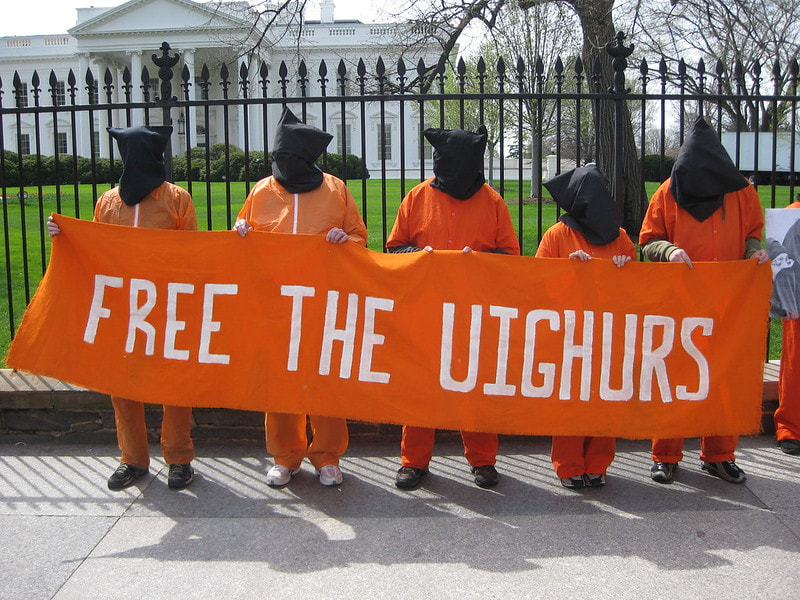|
Author: Ayyoub Tayebi
In the past decade, the Chinese government has been quietly and methodically committing genocide against the ethnic Muslim-majority Uighur population of Xinjiang. It is no longer a discussion of whether this crime against humanity is occurring or not; there have been several reports and studies carried out by government bodies, independent thinktanks, and journalists that prove it, despite the best efforts of the Chinese Communist Party to conceal their actions. It is a testament to the vice-like grip it has on the country that an atrocity of such scale has been kept under wraps. Only relatively recently have the horrors that the Uighurs have been subject to come to light, which include mass forced sterilization, internment camps, sexual violence and forced labour. Within the camps and in their policies, the Chinese government also seeks to destroy the cultural and religious foundation of the Uighurs and their society. This is an effort to homogenize the population of the Xinjiang region, which is being flooded with ethnic Han Chinese from other parts of China in order to make the Uighurs a minority in their own homeland. This process is called Sinicization: a strategy implemented by the rulers of China for millennia. The native tribes of southern China were subject to it and so were the Mongolians living within the borders of the ancient empire, and now the Uighurs see themselves becoming the next victim of this systematic eradication and forceful assimilation. However, this is the 21st century. Human rights should be respected, and cultural genocide will not stand. Countries must take a stand for the values they claim to uphold. However, that is not a straightforward task, as the current situation is unique in terms of aggressor states. Most genocides in recent history have been committed by relatively poor or weak countries, such as Serbia, Rwanda, and Cambodia. On the other hand, China is an economic stronghold with a strong global trade influence. That does not mean we must stand by and watch like we did during the Rwandan genocide only to regret it later. We must find other methods to put an end to China’s actions. One such method is economic sanctions. It is what most states use when they want to punish a nation for violating international law. They have been devastatingly effective against countries like Russia and Iran, but again, China is another animal. China’s economy is closely tied to that of the world, so any restrictions placed on major industries will be detrimental to many nations. Therefore, it is highly unlikely that any will risk disrupting trade with the economic giant. This vested financial interest is also present within the U.N. as an organization, as China is one of its main sources of funding and therefore is less willing to bring the genocide to the member states’ attention. Like the United States, its superpower status allows it to flaunt international laws and regulations without facing much resistance. That does not mean they are invincible though, and economic sanctions can be useful if used effectively. One of the reasons the Chinese government is seeking to homogenize the Xinjiang region is because it has oil and gas resources they wish to exploit and don’t want the local population to get in the way of any endeavors they undergo in their homeland. Sanctioning Chinese companies and individuals (mainly energy corporations) investing/expanding into this region would slow the regime’s plans for the autonomous territory. If this underlying reason for the genocide is halted, then this could dissuade the government from continuing the costly and henceforth unnecessary genocide. Economic sanctions are slow to work and often impact the local population instead of the state, which is why this solution can prove to be problematic. There are other major ways countries can demand action against the Uighur genocide, chief among them recognizing it as such—a genocide. Some countries like the United States and Canada have already taken the lead in this regard. While recognizing the genocide may seem a relatively small action that holds no weight, they inspire other nations to do the same. Presently, many countries are afraid of retaliation if they speak out against China on the world stage. Therefore, a strong international condemnation is needed. The Chinese government can’t impose punitive measures against the entire world, as that would make them lose the world standing they have worked for decades to attain. Once it is faced with insurmountable pressure from all sides, it will have to decide between continuing persecuting the Uighurs or international endeavors such as its Belt and Road Plan, which would be dead in the water without support from nations around the globe. Another potential method is confiscating China’s vote in the General Assembly (the main organ of the U.N. where important matters are discussed and legislation is written). This too will only be symbolic in nature if it is done as a standalone measure. This is due to China having leverage over many small states, who must vote in favour of China at the General assembly in order to protect their own national interests. The vote confiscation would have to come with replacing China as their economic and military benefactor. Admittedly, this would require a great amount of effort and resources, but it would be worth it, as not only could this be used to stop the genocide, it will isolate China internationally, making it easier to punish them for other human rights abuses and breaches of international law. The Chinese government is ruthlessly pragmatic; the world must show the CCP that continuing the genocide is not in their best interests when considering China’s other geopolitical objectives. The direct pressure on China for its crimes will come from governments, but civilians also have a role to play in saving the Uighurs. The aforementioned potential solutions require various governments to make stopping the genocide a goal they are willing to fight for. Let’s not be naïve; they won’t do this out of the goodness of their hearts. Going against China is risky business, and states won’t do so unless they have reason to do so. Before the nations of the world put pressure on China, we citizens must put pressure on our governments to address the issue seriously. We must raise awareness and be outraged at the events occurring in Xinjiang and make it known that this cannot be happening in today’s world. Nowadays, we have many platforms on which to inform people of current events. Social media has risen recently as a considerably effective method of doing so. Seeing the buzz about these topics on social media, traditional media outlets will focus on these issues that have everyone so worked up, resulting in a positive feedback loop. From there, we can turn to petitions and peaceful protests. The genocide must be at the forefront of the popular conscience. The unrest is unlikely to force the governments’ hands, but they will not want to face domestic pressure for actions committed by another state. Peacefully stopping a genocide being committed by a superpower is no easy feat. There is no precedent for it, but giving up would be abandoning the Uighurs to a dire fate. Fortunately, there are methods that can be pursued, and as millions of lives hang in the balance, we should not hesitate to exhaust each one. Help spread awareness about the Uighur genocide anyway you can. Citations Canada, G. A. (2021, April 23). Canadian Sanctions Related to People's Republic of China. GAC. https://www.international.gc.ca/world-monde/international_relations-relations_internationales/sanctions/china-chine.aspx?lang=eng. Carnegie Council. (n.d.). How Can We Prevent Genocide? Carnegie Council for Ethics in International Affairs. https://www.carnegiecouncil.org/education/008/expertclips/026. Kirgis, F. L. (1996, January 22). Enforcing International Law. ASIL. https://www.asil.org/insights/volume/1/issue/1/enforcing-international-law. Koplow, D. A. (2013). Indisputable Violations: What Happens When the United States Unambiguously Breaches a Treaty. Georgetown; Georgetown University Law Center. Samuel, S. (2021, March 10). China's genocide against the Uyghurs, in 4 disturbing charts. Vox. https://www.vox.com/future-perfect/22311356/china-uyghur-birthrate-sterilization-genocide. United Nations. (n.d.). Uphold International Law. United Nations. https://www.un.org/en/our-work/uphold-international-law. |

